The words we use with our children matter, especially in trying moments. They convey perceptions about our child and the situation at hand. For example, if our infant or toddler tests us by hitting and we say, “I won’t let you hit” (with all the calm and confidence we can muster), while gently holding his or her hand, our child then learns:
My parent is a capable leader who isn’t thrown by my behavior and feels confident about preventing me from hurting him/her. I am safe.
My parent speaks to me honestly and directly. I am respected.
“I won’t let you…” also affirms to us as parents:
I am a capable leader and on top of this behavior, not at all threatened or challenged.
Even though my child is too young to share her thoughts with me, I engage with her as a whole person deserving of my respect.
“Thank you for letting me know…” is another powerful phrase I was reminded of by this note from a concerned parent:
Hi Janet,
My husband and I are struggling with how to handle our two year old. He’s testing limits like crazy lately, which we know is developmental and to be expected, but we have to tell him we won’t allow him to do this or that over and over again. We’re also aware that his mood and behavior are affected by the presence of a new sibling.
Our major concern is him not listening in situations where he could get hurt. For example at my brother’s house there is a door and then stairs that go down into their basement. The stairs have no siding and a big drop. S will open the door and start going down the stairs backwards, unaware of how close he is to the edge. We remove him and close the door telling him he’s not allowed to play on the stairs. We explain that he could get hurt, but he continues to do so if the door is unlocked. How can we handle this in a way he understands that there’s danger?
And, of course, there are times we need him to immediately listen to us. For example if he starts running towards the road. I feel like he should be listening better, and part of me feels like I’m parenting wrong because he isn’t. We’re struggling and would so appreciate any guidance you may have. Thank you.
Lacey
Lacey,
“Testing like crazy” sounds like your little guy is having a bit of an emotional crisis, which makes perfect sense since you have a new baby. This is a scary and sad transitional period for almost every child. He’s grieving the loss of the exclusive relationship he had with his parents. The feelings will come and go. This is a process you can support, but neither you nor your boy can control.
Your son is listening, but he’s too overwhelmed to be able to follow your directions. He doesn’t need to hear what you won’t allow him to do over and over again — he knows –because he is attuned and aware, like all young children are.
What he does need you to do is communicate that you understand that his feelings are all over the place (that he’s testing like crazy because he feels crazy), and that you will always love him and keep him safe.
So when his behavior is unsafe, help him by locking up unsafe areas, putting away unsafe objects, calmly removing him from situations, holding his hand so he cannot bolt, or holding him on your lap, while sincerely assuring him you understand. “You wanted to keep playing on the stairs, but that isn’t safe. Thank you for letting me know you need me to keep you safe.”
“Thank you for letting me know you aren’t safe around your sister right now. You and I can sit together as soon as I’m done nursing her. “
“Thank you for letting me know you need me close to help you stop pushing your friends. I’ll stay next to you.”
“Thank you for letting me know you need me to help you stop bothering the dog.”
“Thank you for letting me know…” works because it lets our children know we:
Understand
Aren’t angry
Have their “back”
Want to know what’s going on with them
Through this simple phrase we can:
Model compassion, respect, manners
Remind ourselves that our children’s challenging behavior is not a personal attack, but rather a call for our attention and usually a manifestation of their discomfort
Be our child’s safe zone, provide relief
I offer a complete guide to respectful discipline in my book:
NO BAD KIDS: Toddler Discipline Without Shame
(Photo by frankjuarez on Flickr)

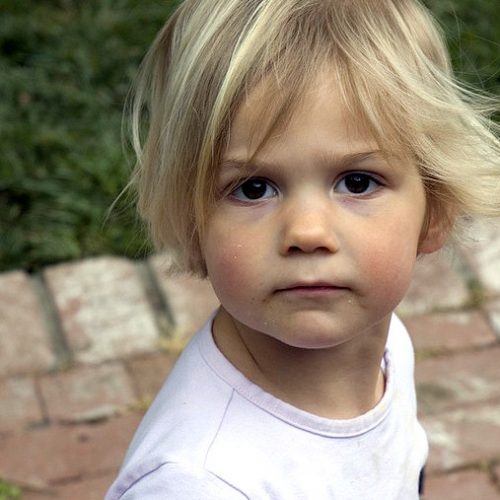
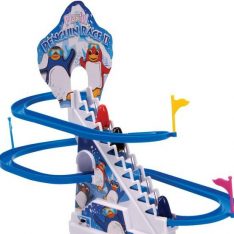



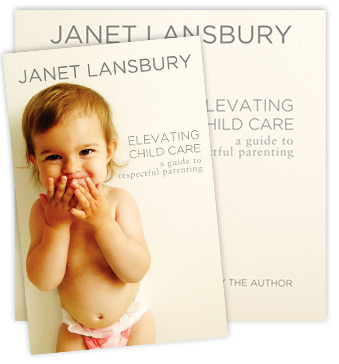

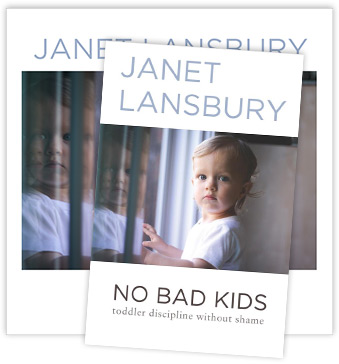
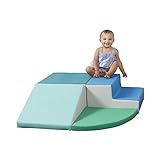

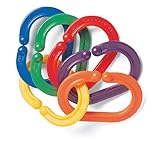

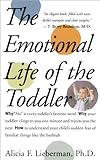
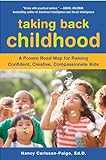
What a great phrase. My daughter lets me know a lot, all the time!! I will remember to use “Thank you for letting me know…” next time instead of repeating what she shouldn’t be doing over and over.
Hi Kate! I would definitely not repeat a direction. Children not only “get it” the first time, they generally have a sense of what’s expected and what isn’t way before we’ve even opened our mouths.
Hope this helps!
Another wonderful post! Janet, can you talk a little bit about how to know whether it’s better to deal with testing behaviors by establishing boundaries (‘I won’t let you…’, ‘thank you for letting me know that…’) versus by ‘processing’ (discussing emotional needs/conflicts that are underlying the behavior). It seems like both strategies are needed at different times, but I’m just going on instinct and sometimes feel like I’m getting it wrong!
Thanks, Mary! Whenever possible, I would try to remember to acknowledge, “you feel like hitting, you seem angry”, etc., either before or after “I won’t let you”. I wouldn’t consider this a discussion, though, just an attempt to connect with your child where he or she is and let her know you understand.
Going on informed “instinct” sounds good! Empathetic discipline (like just about every aspect of parenting) is certainly more of an art than it is a science. In fact, I almost titled this post “The Art of Empathetic Discipline”.
Janet! That could be the name of your next book 🙂
I am really thankful to have found your website for some challenging toddler behavior. I’ve noticed her behavior has gotten worse after weaning at 2.5 years. Have you ever heard of this ? It wasn’t my intention to stop but my supply was no longer available and I think it caused her frustration and confusion. God bless you!
Janet, this post comes at a perfect time. My 20 month old has been testing limits a lot in the evening, after I come home from work. I do my best to give him my full attention – first, sitting next to him while he plays, holding him if he wants, and engaging him during dinner. he has started doing a few behaviors where I’ve been saying, “thank you for letting me know you need my attention” and “i won’t let you (for example) poke the cat’s eyes.” or “i won’t let you poke the eyes, but you are welcome to pet her gently.” and then modeling that.
he has started responding by smiling, and just today, laughing, then attempting to poke again. not really a mischevious laugh but more a joyful laugh. i find this totally confusing and am not sure how to respond. be more serious? be less serious? i’d love some guidance. Thanks!
Leah, I think his smile and laugh are letting you know that he knows. This has become a familiar little story to him…and he’s enjoying the “retelling”. Young children LOVE familiarity, it’s very empowering for them.
So, what I would do is say much less, something like, “Oh, you’re showing me that you aren’t safe around the cat right now. Thanks for letting me know. I’ll stay close.”
Be totally calm and nonchalant. No need to model “gentle” with the cat anymore. He knows all about that! Just hang with him and know that THIS is the kind of quality time he is requesting from you…and it is no less special or important than watching him play, etc.
Janet, this is really helpful. I will try that. If/when he keeps trying to poke the cat in the eye (which is common) do you recommend the saying less and holding his hand/arm gently? because once i let go, he tries again. or is it about removing the cat from the situation.
On a related, testing limit, would you say anything different about him pinching me? He has started doing this a lot when I am changing his diaper. I try to focus on saying the i won’t let you pinch me and/or needing his cooperation so I can help me get dry. The diaper changing process has gotten so drawn out because he won’t stop pinching unless I distract him with something that makes him laugh. is distraction the only way or is there a better path?
Thanks again for all you share with us. I feel so lucky to know about you as a resource and teacher. ~ Leah
Leah – if you have the option of removing the cat, I would. “You feel like poking the cat’s eyes…Thanks for letting me know you’re in a poking mood 😉 and not safe with the cat right now. I’ll move the cat”. Remember to remain unfazed and matter-of-fact.
I don’t believe in using distraction, period, for a number of reasons: https://www.janetlansbury.com/2011/06/5-reasons-toddlers-dont-need-redirection-and-what-to-do-instead/
In your diapering situation, distraction is teaching your son that you cannot handle his behavior. Do you not feel able to prevent your son from pinching you (by holding his hands, etc.)? This is the KEY, because he pinches for the exact same reason he bothers the cat and tests in other ways. He is asking the question: “Can you handle my behavior?”
He needs your answer to be: “Yes, I can, empathetically, calmly and confidently.” He will keep testing until he gets a consistent positive answer this question. Does that make sense?
What sort of advice is “Oh, you’re showing me that you aren’t safe around the cat right now. Thanks for letting me know. I’ll stay close.” for when a child is poking the eyes of another animal.
Firstly, children should be taught by their parents right from wrong and that there is no excuse for causing a wrong on another animal (be they cats or people).
Secondly, this is encouraging the child to perform a wrong in order to get the attention of a parent whenever they want it. It is not always possible for a child to have the full attention of a parent (we are busy people and may actually have other chores around the home) and encouraging such an attitude encourage the growth of a narcissistic view of the world.
Thirdly, the particular phrase “showing me that you aren’t safe around the cat” is reinforcing that the cat is an unsafe animal and that the child should be scared of the cat. Children should be encouraged to play with animals as it leads to compassion and empathy towards others.
Hi John,
I think you’ve wildly misunderstood the point of what Janet is saying. She is encouraging us to end this unsafe and hurtful action between the child and cat and to stay close to let our child know that it’s not an action we will let them perform because it is unacceptable and that we will be there to stop them. No one is excusing the behaviour just reframing the motivation behind it. Children don’t have the same reasoning skills we do and need our help, lashing out at our child certainly doesn’t teach them empathy and compassion, having empathy and compassion towards them and others is what does that. I also don’t think this reinforces the car is unsafe, but that their behaviour is unsafe. I use this tool with my son on the rare occasion when he is unsafe with his baby sister or animals and he’s certainly not scared of either of them.
Dear Janet,
my son, 32 month, throwed a car directly to my head 3 weeks ago. That really hurt and I left the room after overreacting by throwing cars in the box – crying. He stayed with my husband who explained him calmly why I left and why I was upset.
Today my son told me,
“Mum, when you get a car to your head again, you have to say “Stop, i don’t like that””. Should I also add the “Thank you for letting me know … ” part? I know my first reaction was not the way i wanted to react 🙁
Thanks for your great blog.
Ira
Thank you for your kind words, Ira. It sounds like your boy isn’t getting the boundaries he needs generally. How do you feel about setting limits with him? Are you consistent, confident, calm? Do you follow through with helpful actions? I ask because his action was rather extreme… and his words also suggest that he needs much more calm authority from you.
Dear janet,
I think i am fine with setting limits but my weakness is it defintily
staying always calm because that was new for me. You think he wants to Check if i stay calm?
Best regards and thanks a Lot
Ira
Rule #1: never, ever take a child’s limit-pushing behavior personally. Our children love, appreciate, and need us more than they can ever say. Remind yourself of these truths multiple times daily until you’ve internalized them, because a healthy perspective on limit-pushing is a crucial starting point. Respecting children means understanding their stage of development, not reacting to their age-appropriate behavior as if they are our peers.
https://www.janetlansbury.com/2013/10/the-real-reasons-toddlers-push-limits/
Dear Katharina,
Thanks for the Link, it is now Part of my favorites to generate a Mantra 🙂
I haven’t internailzed it yet but hopefully soon, before his little brother join us end of march. Today He threw his fork because The dessert was not his favorite. This time i stayed calm, removed all Parts and said “thanks for letting me know you need my help, so you will not throw anything at anyone”. He looked surprised, gave me a hug and ate the fruits.
Ira, that sounds like great progress. I have some more links like the one I shared. I consider them to be some of Janet’s classics:
https://www.janetlansbury.com/2012/02/parent-do-overs-7-confidence-building-responses/
https://www.janetlansbury.com/2012/02/what-your-toddler-thinks-of-discipline/
https://www.janetlansbury.com/2010/04/no-bad-kids-toddler-discipline-without-shame-9-guidelines/
Wow, so great to hear that, Ira! And thank you, Katharine!
I just wanted to say thank you for this and all of your previous articles on dealing with a toddlers emotions. Never have I needed to apply the concepts learned here more, than last night at the wake for my fathers-in-law, (Grampie) who we lost this week. After several long days of being forced into a adult world of planning, traveling to and through artic temperatures, and socializing with people he sees rarely or never, my son finally said “enough” at the funeral home. I naturally applied all of these tactics and while he cried and hit and begged, it did eventually work. My son calmed down enough to finally take a nap and his emotions were validated. He felt safe and knew I was there to protect him from anything he did not understand, including himself. Thank you Janet. In this trying time, I was able to feel good about my parenting skills and my son was able to trust that I had his back while daddy grieved. Had it not been for your articles, I’m sure the evening could have quite differently. Keep up the good work! And again, thank you.
I can’t thank you enough for sharing this experience, Crisinda. You’ve made it all worthwhile. THANK YOU!
I love this reminder, and in fact really relate to this in my own life. When I “act up” this is often what I’m asking for (from my husband or my friends or parents or colleagues): that child in me wants to be recognized and kept safe. That’s all. Knowing that this is also what our young children feel – often without the emotional awareness or language skills to communicate it – is extremely helpful in helping us (as parents) manage the behavior. Lovely, lovely stuff.
Thank you, Kiyah, you are so insightful! I’d be interested to hear more about your “acting up”. 🙂
As far as the safety issue – this is another reason not to say “stop ___ (throwing, hitting, etc)” The only time I ever say “stop” is when I’m asking the 2yo I nanny for to physically freeze. We play a toddler version of red light, green light where we call out “stop!” “go fast!” “go slow!” etc. so she has had lots of practice (and she calls out directions, too, so it’s not just me being a drill sergeant). This was tested last week, we were on a walk and she ran for the street. I said “(name) stop please!” and she stopped immediately. I’m not sure this is 100% RIE but it’s very effective with toddlers.
Sounds good, Elisabeth!
What a timely post! I discovered your blog several months ago and while it all resonates very deeply with me and I have done my best to implement most of your advice, I still constantly find myself in situations with my 3 year old where I am not sure how to respond. He seems to go in waves: one week he will be as sweet and compliant as can be and I pat myself on the back for being such a calm and confident leader. But the next (read: THIS week) he is harassing his 20 month old sister (getting in her face, ripping toys out of her hands, telling her “no” whenever she asks me for something,) telling ME “no” regularly when I ask him to do me a small favor, or yelling as loud as he can just to see what I will do. When I am around to physically stop him, he will refrain, but that doesn’t stop him from doing it 2 seconds later. Sometimes I will say something along the lines of “you are having trouble playing nicely with your sister and I can’t help you stop ____ right now so you have to play in another room,” but it doesn’t seem to be helping. I am trying desperately to get my husband on board with the RIE philosophy, but he keeps saying that my son would stop these behaviors if we gave him a good enough reason to (spanking, “consequences,” etc.) I know he is “letting me know” that he needs help, but I am not sure how to enforce certain limits at this age. What if I am always re-acting to a behavior instead of stopping it from happening in the first place?
I have an almost 3 year old and we have similar days….interested to read more on this topic. It seems we go from GREAT days to REALLY hard days.
Thanks for your kind words, Sarah! Regarding your son’s behavior toward his sister:
“getting in her face, ripping toys out of her hands, telling her “no” whenever she asks me for something,) telling ME “no” regularly when I ask him to do me a small favor, or yelling as loud as he can just to see what I will do.”
All of these behaviors are par for the course for children your son’s age…and especially for those with younger siblings. That probably doesn’t make you feel much better! But, to be honest, these are all behaviors that I would let slide, and try to understand rather than “react” to. I would definitely not attempt to physically prevent your son from grabbing toys or telling his sister (or you) NO. The way to “stop this happening in the first place”, believe it or not, is to not sweat this small and natural sibling stuff. Remember that one of your boy’s fantasies is to completely dominate his sister, because from the moment she was born and stole his parents away, she became a huge threat…which doesn’t mean he doesn’t love her on some level…but I can’t emphasize enough how NORMAL his behavior is. He needs you to UNDERSTAND when he feels controlling, obstinate, and wants to take toys from the tiny person who took EVERYTHING away from him. Understanding and accepting your boy’s strong feelings, (which are manifested in his behavior and NO’s!), while preventing him from physically harming his sister will ease his pain…and his attention-seeking behavior.
As always, I recommend the wonderful book Siblings Without Rivalry.
If your son says “NO” when your daughter asks you for something, I would say calmly “[Name], I see you don’t want [daughter’s name] to have/do that. I can see you are not happy with her. But I am letting her do/have that. Would you like to do/have that too?”
I would also reccomend one of Janet’s other suggestions, which is that your younger daughter has a “safe space” to play in, where you can put her if your son continually gets in her face/rips toys out of her hands. “Thank you for telling me you cannot play with [daughter’s name] right now. I will take her to her play space so she can play by herself safely.” This way, your daughter isn’t unsettled by the “in your face” behaviour or the toy taking, and your son is given a boundary. After you’ve settled your daughter, I would then advise giving your son some attention. “I know it’s hard having a new baby sister! But we will still get some time together” etc.
I really like the self-responsibility and the clarity of the “I won’t let you” statement, as opposed the “You can’t,” or “You shouldn’t,” or even “We don’t do that,” that kids hear so often.
I also love Elisabeth’s idea of the version of red light, green light, which is also something I do with my daughter and encourage my clients to do.
The only other thing that I would add to the situation discussed above is the significance of letting children understand safety issues *for themselves*. In this case, when Mom or Dad has a little time & patience, to take the little one to the bottom of the steps, explain why the situation can be dangerous and let the toddler explore the steps a bit while being “spotted.” As she/he is exploring, Mom or Dad can ask, “Does that feel safe to you? How do you think you would feel if you fell? If you were ever here by yourself & you felt scared, you could just stay very still and yell “Mommy!!””
This does two things. #1 it removes the steps as an object of curiousity and takes away the sense of them being a “forbidden fruit.” Once the child he’s “been there, done that” he will be far less likely to explore them on the off chance that a door is accidentally left open (and even if he does, he’ll be much more cautious than otherwise).
#2, it gives the child a chance to learn about his environment and safe ways to engage in it. You might even give him the chance to drop a few things off the side and see what happens to them: a penny, a grape, a piece of paper, perhaps even an egg (and catch it in a bucket)
Only thing left to say is that I love and share so many of your posts, Janet! Thanks for all you do!
I like your ideas, Wendy, thank you!
I am curious, Janet, what your advice is for handling toddler testing in ways that are beyond our physical control. I have a specific example that occurred this morning with my (almost) 3 year old daughter. We have hardwood floors and she told me that her feet were cold. I asked her if she wanted to put on socks, and she said “yes.” I let her pick a pair out of her closet and helped her put them on. As soon as we got them on she screamed and told me that they “felt funny,” then ripped them off and threw them on the floor. I acknowledged her feelings, then I asked her if she wanted to try a different pair and she said “yes” so we tried on a different pair and the same thing happened. After that she told me she didn’t want to wear socks but still told me over and over again that her feet were cold. I provided more solutions, all of which she did not want to try, but she still told me over and over that her feet were cold. I tried everything I could think of, all the while acknowledging her telling me that her feet were cold, and acknowledging she was upset about it. Situations like this have been happening over and over with her lately and I feel unsure about how to handle them and I reach the point of annoyance and I am sure she senses that. Is there a point where you say to your child “I am all done talking about this?”
Hi Heather,
I am curious to hear what Janet’s take is on that situation.
If you were my client, I would encourage you to find ways to honestly express your feelings about the situation in a way that doesn’t make your daughter wrong, but allows you to be acting from a place of integrity.
It sounds like you really did your best to help her come up with a solution that would work for her, and it’s no wonder that you were at your wit’s end after a while!
I’m not sure I’m hearing that there is really any toddler testing happening in your story, so much as the unfortunate situation of one person (your daughter) having a problem that the other person (you) can’t help them find a workable solution. :-/
I look forward to hearing Janet’s response if she has a chance to respond. Meanwhile, I’d love to offer more support if you’re ever interested.
Warm Hugs.
Wendy
Heather – it sounds like you got caught up trying to please your daughter while she was (unconsciously) looking for a way to explode. Toddlers behave unreasonably when they are “lost” in their emotions. I strongly recommend making a decision early, well before you get annoyed. This will prevent you from “losing it” and also give your child the emotional release she needs. So when you offered the socks and your daughter rejected them, I would have left it at that. Then I would have acknowledged (without the slightest bit of judgment) how upsetting it was for her to feel cold, but not want socks. Her strong feelings are not about socks or cold feet… and we may never learn exactly what they ARE about, but we can always trust that emotional outbursts are EXACTLY what children need to have at that particular time.
Janet,
Today, Noelle, (almost) 19 months, climbed *into* her bird seed sensory table and just looked at me.
I had been cooking and cleaning. I said, “thank you for showing me you need my attention” and I scooped her up and gave her some undivided attention.
Thanks for the perspective and script.
Sounds perfect, Katharine.
After almost a year of not blogging, and not reading any parenting blogs or books, I feel very rusty in how to deal with so many situations with my children. Thank you for giving me another tool to use. One thing I’m so grateful for with RIE is that it is timeless — what works with an infant works with a grade-schooler. In the end it’s about connecting and building a relationship, but it’s something I sometimes forget in my rush to make it through the day. I’m so glad to be back and finding more helpful advice. Thank you for linking to my post!
Yes, Magda Gerber’s advice IS timeless! I think I’m qualified to make that statement now that I have a 21 year old… and we both continue to benefit from Magda’s wisdom. Thanks, Suchada!
Janet-I must say-Thank you for another timely post! I feel even more at times lately my message isn’t getting across either and wonder what I am doing wrong. This helps tremendously! Sherra
I’m very glad to hear that, Sherra, thank you!
I experienced this just a few days ago. My husband is out of town on business and it takes a toll on the both of us..eventually. My latest post tells the tale. Thank you for all your hard work, Janet!
http://tactnotincluded.weebly.com/4/post/2014/01/tiny-humans.html
Hi, I have a 4 year old that hits, kicks and throws things with the intent to hurt when she has an upset. Is this dialogue approprite for her too?
Thanks!
For sure! I use this in preschool all the time, and it is very helpful. 🙂
I say “I can hear you are upset, but i will not let you throw things/hit me/kick me.”
In the situations I encounter, often hitting/kicking/throwing is because another child has done something “wrong” by the original child. Sometimes 3-5 yr olds don’t know how to stand up for themselves. They don’t have the vocab/experience to say “NO!” to someone doing something they don’t like. I encourge them to say “NO! Stop it!”, if it is something like toys being taken or being pushed off the balance beam. The mechanism (not being able to say NO -> throwing/kicking/hitting) is the same when it is something like having to go out to the car, having to go brush teeth, etc. It helps me to remember that when a child is hitting/kicking/throwing, it is not because they are “bad” or “naughty” but because they have not yet developed the skill to verbally express displeasure, or to tolerate displeasure internally.
So, the aanswer is to recognise your 4 yr old does not yet have the ability to tolerate displeasure internally. You could teach your child how to say “I don’t like it when you do that!” or “No! Stop it!” when she is upset. This will give her an outlet that is not hitting/kicking/throwing. (Be prepared for “NO STOP IT” if you upset her for a reason that needs to be done – for example, getting in the car to go somewhere).
If this doesn’t work, though, if teaching them to stand up for themselves isn’t enough, I get my students to go and hit a tyre with a pool noodle, or encourage them to yell their feelings. I say “Would you like to tell me how you feel?” and sometimes they will say “I AM REALLY ANGRY” or “I don’t WANT to go inside!!!”. Usually after they have verbalised this, they calm down a lot. They just want to be listened to, and to “get” their emotion “out” somehow.
🙂
what can be the effects if instead of this kind of aknowledgements and understandings for the 3 year old’s feelings after getting a brother, the parents starts punishing and correcting? I’ve noticed emotional and social problems. Do you have tips about how to deal with this now that he is 6 years old?
Hi Janet, thank you for this post! I really really like it and it will be great for our toddler.
I wonder: would this be a good method for older children? My son is 7 and has a long history of very challenging behaviors. Yesterday he was removed from a supervised exercise class because he kicked and tripped another child.
I wanted to “respond” rather than “react” and I told him I needed some time to think about what to say and what consequence would be appropriate. He felt remorse and was upset that he had that behavior. And I felt sympathy for him. However, what he did was unacceptable. So I took a privilege away from him for 3 days. Would you also recommend using language like, “Thank you for letting me know you are unsafe in that class.” ? I want to do the “right” thing in these situations, not react in anger, respect my child, and also prevent him from these behaviors as he gets older. Many many thanks.
… while i don’t have human children, i remember being one. my mother was severely destructive, to say the very least, which leads me to have a lot of anxiety about having my own children. i’ll be staying tuned for your excellent guidance and advice. i wonder if you need a 32 year old daughter? i’ve always wanted a mother just like you. i was told they were a fantasy. thank you for proving it isn’t. 🙂
“Thank you for letting me know…” strikes a bad chord for me. It sounds cloying, fake, and insulting. I know these *are* children, so maybe it makes sense that we speak to them in such a paternalistic way? Also, doesn’t thanking someone for misbehaving give them the wrong impression?
What’s different about the RIE approach is that we speak to even the youngest children sincerely and honestly…and no, we are definitely not cloying. Fake smiles, false enthusiasm, games, distractions, and “Honey” or “Sweetie” are cloying and patronizing. Children see right through them. “Thank you for letting me know” understands why children behave the way they do. I recommend understanding children, rather than labeling their behavior “misbehavior”. I realize this respectful approach is quite different from what most are used to.
Would this still be appropriate with a 3.5 yo? To say “thank you for letting me know you are not safe around the baby right now?”. Or “thank you for letting me know yo. Aren’t ready to go yet, can I help you get ready?” Or is there a different approach with an older preschool child?
It would still be appropriate, but I think this phrase would only fit for the first example you gave. For the second one I might say something like, “you’re having a hard time getting your clothes on this morning, so I’m going to help you out. Which shall we put on first, your shirt or your pants?” Older sisters and brothers need this kind of nurturing attention sometimes.
I also love Siblings without Rivalry. Must reading for any parents of more than one child. My then 5-year-old provided real insight into how an older sib feels when a new baby comes along. I was making a “quick deposit” at the bank in one of those machines when my son asked me to explain what I was doing. As we walked out of the bank, he looked at me and asked, “Can we deposit Gabriel (the new baby)?”
Goodness, I could go on (sit here forever reading these post). I have a 25 yr old and 27yr old daughters and now 6 year old twins. Boy /girl. They have fights constantly and although I try my best, I feel I am never getting it right and lose my temper with them too often. They constant bickering back and forth drives me nuts or the actions my 6year old daugther pulls quite often. Pestering her brother-getting jealous-trying to one up each other…. and when I talk to her in the front seat -her in the back, she answers under her breath to even simple questions or just nods…..and she knows I cannot see her when I’m sitting in the front seat or hear her at all and I keep asking the question til I finally lose it and start yelling to her to answer me so that I can actually hear her , etc. Seem like lots of power struggles , not sure. They get tons of my attention as well as dad’s and extended family and friends. I try to remember the posts you write and apply them , but hard to always do and then I feel like a bad mom that handled it all wrong and possibly screwing up thier relations /interactions with people in the future .
I knew having a two year old and a newborn would be difficult, but some days I feel like I’m in over my head. Our two year old has been especially defiant since his sister was born 6 weeks ago and I feel like we’ve tried everything to get him to listen. For example, going to bed – we have a consistent routine that we’ve followed since he’s been one. When it’s time to get ready though, he refuses. I’m not sure what to do. I give him a heads up 5-10 minutes before, I’ve tried choices (do you want to brush your teeth first or put on your pjs?), when he doesn’t listen we take away priveleges (1 book instead of 2), time outs, time ins, etc. Nothing seems to work. It’s not just bedtime either…any time we say “it’s time to…” his answer is “no” or he smiles and ignores us. Any suggestions would be appreciated!
I’m commenting so I can see a response as we are dealing with similar issues.
Any suggestions for bedtime? I have 2 year old twin girls that I’ve had to separate and now we’re trying staggering bedtime to end the hour + of jumping/playing/screaming that happens in there. They throw all their comfort objects out of the bed and have a fit until they’re returned. I don’t know that a “thank you for letting me know you’re having trouble falling asleep.” or “I see you’re upset and don’t want to go to bed right now” will help because after those statements, then what? We have a consistent bedtime routine and wind down time every night. They have physical play and we go outside whenever possible. So I feel like I’ve done everything to set them up for success. Even splitting them up, whoever is in there by themself first takes an hour to go to bed. Less noisy/rambunctious but still a lot of the same behaviors of throwing all comfort objects out. The second one to go in will throw their stuffie into the other sleeping sister’s bed in an attempt to wake her up.
I’m SO sick of bedtime…
I could read your articles, and relate to the comments all day Janet. I so wish I could find a way to better relate and connect with our highly emotional, energetic, & spirited 4yo.
He is very bright and ahead in his language skills, yet has a difficult time socially, & lately emotionally. I know some of it is developmental, but when do we seek help? I’m worried that his outburst are affecting his 20mo brother.
Lately when something doesn’t go his way he gets violent. Throwing things, kicking people, screaming. I try so hard to react calmly, noticing that he is frustrated, and asking if I can help. But sometimes he won’t even respond, just top of his lungs screaming, inches from my face. Then he will run off & deliberately break or spill things. Often it is not a situation that can be changed. (The broken crayon is still broken, we still need to put on coat to go outside, I can’t let you hit, jumping on sofa is dangerous) I know that it is about his emotions and feeling safe, but he is still screaming about the crayon. Now the 20mo is also crying in fear, and I’ve lost calm.
When we do have a good day, or at least get past it, telling him how much I still love him even if he’s angry or sad works later after he’s calmer. How to deal in the moment? ” thank you for telling me” is not heard on any level during screaming meltdowns.
Sorry I never comment like this. Just feeling so alone some days.
This is one of the reasons we have such a large problem of children and teenagers not having any respect anymore – discipline is no longer encouraged, in fact, it is actively discouraged. You cannot reason with an infant. The “Soft Discipline” experiment has been a total failure for our society.
You cannot ‘ask’ that a child do what you say – they have to be told what is right and told what is wrong. As a parent, we are there to ‘teach’ our children how the world works.
I agree with you about not getting angry, but using the phrase “Thank-you for not…” is using an encouragement and encouragements are reinforcing.
I was hoping that I would see someone who has a different opinion. I have been reading for for a long period of time and still cannot figure out why so many feel that we have to ok certain behaviors. I could write pages on this subject. While I do agree with modeling calm behavior, children need to learn boundaries and it is up to us to teach those boundaries. Children seem to have hard time regulating. Some,just have learned the behavior because it works! A lot of times its about control. Give them time to vent, talk to them and give them a choice…ex: would you like to put your socks on by yourself? Or would you like me to help you put them on…you chose..follow through and then praise if they chose to do it on their own. I have yet to to observe a child who will use bullying, force, verbal abuse and physical violence as a way of saying “I don’t feel safe”. Sometimes I feel that we empower without expecting the child to earn that empowerment.
It’s about perspective. I don’t believe there is any part of RIE that says we can’t teach our children right from wrong. What is being discussed here is how to perceive their challenging behaviors in a way that allows US to remain calm/not overreact. And in my experience, this is important, because the best way to get a kid to repeat unwanted behavior is to overreact. By “overreact”, I mean yelling, lecturing, and punishment (I have done all three and have not yet achieved success with these methods). Overreacting does not refer to discipline in the sense of being consistent, stating expectations, or setting limits and boundaries. You are right that it’s very important to be able to set limits and stick to them.
More to the point, our kids typically misbehave *in spite of* knowing right from wrong. So why are they doing it? They need something and they don’t know how to ask for it. Janet’s advice to look past the behavior to the underlying need is sound, because not only does it help us maintain our cool; it helps our kids learn to identify and verbalize the feelings they struggle with rather than acting them out in more destructive ways.
Example: my son hates putting on clothes. Sometimes he screams and struggles, sometimes he runs away from me. One day while struggling to put on his shirt with him squealing in protest, I said, “you can say you’re angry about this if you want”. Maybe not exactly RIE, but it’s what came to me in the moment. Well, the next time I tried to put a shirt on him, he struggled a little, then said, “I’m so MAD!” to which I replied “that’s ok!” …and that was all it took for him to be happy again lol
I have to say that “testing like crazy” sounds a lot like every little boy I knew as a child, an adult and father of 3 boys. It is not an “emotional crisis” it’s life and a part of it that should not be treated as a “crisis” come on now.
You are welcome to your opinion, Nathaniel. Toddlers often do experience an emotional crisis when a sibling is born, and that was the example presented. I wonder why you believe children “test like crazy”. What do you think causes this? I don’t agree that all kids do this. Most children test limits, but not repeatedly or with fervor unless they are stressed in some way.
Ha, john o. I did not see your post until after I had posted. Well said, who really is in charge here? Does the child know? Do we? Good questions.
I enrolled my 2 1/2 yo in gymnastics. We’ve had 2 sessions. This is parent/tot class. Both sessions caused her to scream with frustration and anger. She doesn’t want to sit with me and do what the ‘coach’ wants, she doesn’t want to be told ‘we are doing this now’, or ‘let’s all go here’ – no, she just wants to run and jump and she disrupts other classes and screams when I bring her back to ours. I don’t know how to help her understand that she must follow the group. I don’t think I can continue to take her to class, but she needs to learn this.
Such a timely post! I have had great success with the RIE approach so far with my almost-3 year old until recently. He has been teasing our year old dog a lot more in the past week. I have tried “I can’t let you hurt the dog.” I acknowledge that he thinks he is playing with her but that throwing small toys or kicking her hurts and scares her. It is not working yet. One thing I have been doing if he repeats this behavior after our first chat about it is taking away the toys that he is using to hurt her (swatting her with his stuffed animal, then the animal gets put away for a while, rolling his toy shopping cart toward her so she will run away, toy
Shopping cart is put away). I know this may be encouraging the challenging behavior in some ways but in the moment I feel like he isn’t understanding the abstract concept that the dog is scared and he needs to experience a consequence to the action he took. I don’t do this in a shaming way — I just say that he isn’t using that toy in a nice way so it needs to be put away. Saying “I won’t let you hurt the dog” isn’t enough right now and locking her in a separate room isn’t a long term solution. What do you think about taking toys away in addition to the phrasing that we are trying? I hope he phases out of this soon!
I believe I could have written Lacey’s letter myself, the situation being so close (except for the staircase). My two-year old usually understands us well….when he listens. He then usually doesn’t care when he’s not getting what he wants. The new sibling did not especially change this (it did reduce our energy and patience, though, as well as create new potentially dangerous situations). He’s cute and considerate with her, but as soon as his attention is elsewhere, careless and can hurt her (and us) with elbows and the like.
Being in an international family (two different accents of French), living in a different language country (Dutch) with once-a-week Dutch daycare and getting English-speaking baby-sitters to cover the rest, he’s very late in language (he already was before moving here), so confirmation he understands us, and the expression of his needs and wishes, is also lacking. We tried the “we understand you’re angry” acknowledgment type of response, to no avail: when not having his way, he yells at EVERYTHING we tell him, no matter the words or tone, and then continues yelling for a moment even after we stopped saying anything. Now when he grabs something, he just runs with it (no matter how dangerous it is), then throws it if we catch him and actually steps on it, no matter if it’s breakable or not. Trivial or dangerous situations are alike, and as he grows, he reaches more and more areas (so we’re lacking safe spots now) and he doesn’t respect any boundary.
He’s a fun-loving, smiling child who desperately lacks any shyness or fear (it’s cute but also concerning at times), always active and moving and demanding attention (anyone will do, kids or adults). But he’s definitely hard to manage, and with the newborn and his enhanced reach and quickness, our ability to physically contain him is much diminished.
This post is particularly relevant to our family right now. We have a 28m old and 1m old. The older is very verbal and had been doing really well with her baby sister. However, in the past week or so, she is having many more, what I guess I will call mood swings. Nothing is negative toward her sister, nor is there usually a specific trigger. In these moments she goes from being perfectly happy to really upset, is often not talking, just starts crying and grunting (whereas her usual cry is ‘I want..’ or ‘I don’t like it’). Sometimes she wants to be held but other times she resists. Do you have a suggested phrase for these types of breakdowns? I am sure it is in response to the changes at home, but it is not in response to being told No or doing anything unsafe etc. So far I am trying ‘Thank you for telling me you need my attention right now’ as my only idea. It is breaking my heart to see my otherwise happy, sweet, smart girl be so sad and making me feel badly that I don’t know how to help her !
Such a great post.. I’m learning so much from your website! Thank you. Please can you help me use this phrase when my 2.5 year old pushes her grandmother away when she comes to play with her (when she’s playing already with me and my husband)? My MIL is finding it rude and offensive and I’d love a way to phrase it. Thank you
Thank you, Mary! I would acknowledge and interpret for your daughter and her grandmother, placing your hand there to prevent ungentle touches from your daughter, “Are you asking grandma to wait until you’re ready to play? I can’t let you push, that’s unkind.” I’d also consider if you and your husband need to be playing with your daughter when grandma is visiting because chances are she will prefer your attention. Maybe the choice could be to play with grandma or on her own.
Great post Janet! I’m currently making my way through No Bad Kids and I’ve just discovered your podcast too. My nearly 2yr old is enjoying testing currently. Her favourite is to bash the dining table with her water cup, followed by her bowl and cutlery as I end up taking her cup away after saying I can’t let her bash the table and if she continues I’ll have to take it away. It happens at every meal. I’m going to try “thank you for letting me know you need my attention” but should I be saying/doing anything more to stop her constant bashing at meal times?
Thanks so much.